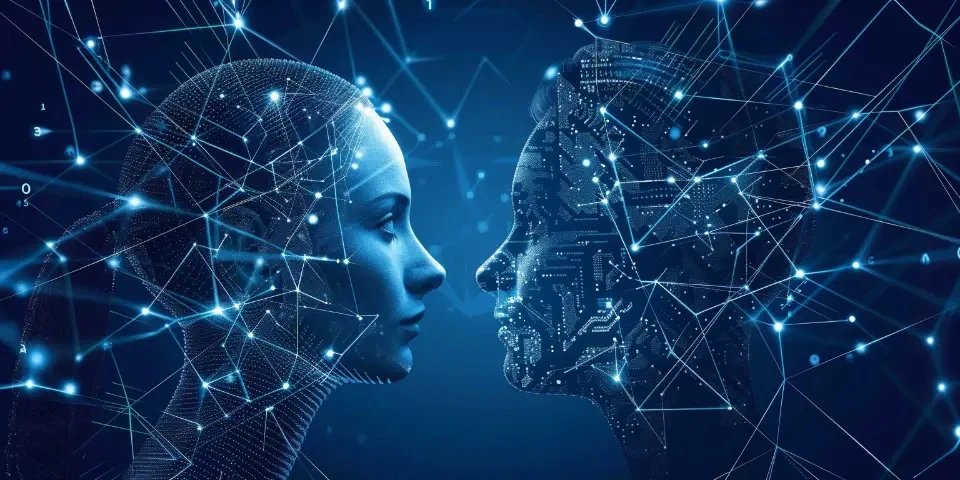Transforming Learning Experience with AI-powered Education Technology
Education technology has witnessed significant advancements in recent years, with the emergence of artificial intelligence (AI) revolutionizing the learning experience. AI-powered education technology has the potential to transform traditional teaching methods and provide personalized, immersive, and adaptive learning experiences for students. In this article, we will explore the various ways in which AI-powered education technology is revolutionizing the learning experience.
1. Personalized Learning
AI-powered education technology enables personalized learning experiences tailored to the individual needs and learning styles of students. By utilizing machine learning algorithms, these technologies can analyze vast amounts of data, including past performance and preferences, to provide customized content and recommendations. This ensures that students can learn at their own pace and focus on areas that require improvement, enhancing their learning outcomes.

Additionally, adaptive learning systems can adjust the difficulty level of content based on the student's progress, ensuring that the material remains challenging yet achievable. This personalization empowers students to take control of their own learning journey.
2. Intelligent Tutoring Systems
Intelligent tutoring systems (ITS) incorporate AI algorithms to provide interactive and personalized tutoring experiences. These systems can evaluate students' responses, identify misconceptions, and provide real-time feedback to enhance understanding and knowledge retention. ITS can also monitor student progress and offer customized recommendations for further study.
One example of an intelligent tutoring system is Carnegie Learning's MATHia platform, which combines AI and cognitive science to offer personalized math tutoring. The platform adapts to individual student needs, ensuring a targeted and efficient learning experience.
3. Natural Language Processing (NLP)
Natural Language Processing (NLP) is a branch of AI that enables computers to understand human language. In the context of education, NLP can be used in various ways, such as automated essay grading, virtual language tutors, and intelligent chatbots.
Automated essay grading tools, like the one developed by EdX, utilize NLP algorithms to analyze language structure, coherence, and quality to provide consistent and timely feedback to students. This not only saves valuable time for educators but also allows students to receive immediate feedback and improve their writing skills.
4. Enhanced Collaboration and Communication
AI-powered education technology enhances collaboration and communication among students, teachers, and parents. Platforms like Google Classroom use AI to streamline communication, assignment distribution, and grading, facilitating seamless collaboration and reducing administrative burden.
Furthermore, virtual reality (VR) and augmented reality (AR) technologies provide immersive and interactive experiences that foster collaborative learning. Students can virtually explore historical sites, conduct science experiments, or participate in virtual group discussions, enhancing their engagement and understanding of the subject matter.
5. Intelligent Content Creation
AI-powered content creation tools facilitate the development of high-quality educational resources. These tools automate the generation of interactive quizzes, lesson plans, and instructional materials, saving teachers valuable time and effort.
Tools like Adobe Spark and Canva leverage AI algorithms to simplify the creation of visually appealing presentations, infographics, and videos, enhancing the overall learning experience of students.
6. Data-driven Decision Making
AI-powered education technology generates vast amounts of data that can be effectively utilized for data-driven decision-making. Educators can analyze learning analytics to identify student performance patterns, optimize curriculum design, and assess the effectiveness of teaching strategies.
These data-driven insights can enable educators to personalize instruction, identify at-risk students, and provide targeted interventions, leading to improved learning outcomes.
7. Gamification of Learning
Gamification involves incorporating game-design elements and mechanics into educational activities and materials. AI-powered gamification platforms, such as Kahoot! and Classcraft, enhance student engagement and motivation by turning learning into an interactive and enjoyable experience.
Students can compete with peers, earn rewards, and progress through levels, transforming learning into a fun and immersive adventure. Gamification also promotes collaboration, critical thinking, and problem-solving skills.
8. Addressing Learning Disabilities
AI-powered education technology has the potential to address the unique needs of students with learning disabilities. Intelligent systems can adapt content, provide additional support, and offer personalized interventions to ensure inclusivity and equal learning opportunities for all students.
For example, Read&Write, an AI-powered literacy software developed by Texthelp, provides tools for reading, writing, and language learning, empowering students with dyslexia, ADHD, or visual impairments.
Frequently Asked Questions (FAQs):
Q1: Will AI-powered education technology replace teachers in the future?
A1: No, AI is designed to enhance the teaching and learning experience, not replace teachers. It can automate administrative tasks, provide personalized feedback, and offer additional support, but human interaction and guidance remain essential for effective education.
Q2: Is AI-powered education expensive?
A2: The cost of AI-powered education technology varies depending on the platform and features. While some tools may require a subscription or licensing fee, many free or affordable alternatives are available, making AI-powered education accessible to a wide range of educational institutions.
Q3: Are AI-powered education technologies safe for student data privacy?
A3: Data privacy is a significant concern in the education sector. It is essential to choose AI-powered education technologies that comply with data protection regulations and prioritize student privacy. Understand the data collection and usage policies of the tools and ensure robust security measures are in place.
Conclusion
AI-powered education technology has immense potential to transform the learning experience by providing personalized, adaptive, and immersive learning environments. By leveraging AI algorithms, educators can tailor instruction, enhance collaboration, and generate data-driven insights to improve learning outcomes. While AI cannot replace human teachers, it serves as a valuable tool in supplementing and enhancing traditional teaching methods. Embracing AI-powered education technology can pave the way for a more engaging, inclusive, and effective education system.
References:
1. Carnegie Learning's MATHia platform: https://www.carnegielearning.com/products/mathia/
2. EdX automated essay grading: https://www.edx.org/school/uctx/course/writing-professional-email-and-memos
3. Read&Write by Texthelp: https://www.texthelp.com/en-gb/products/read-write/
Explore your companion in WeMate